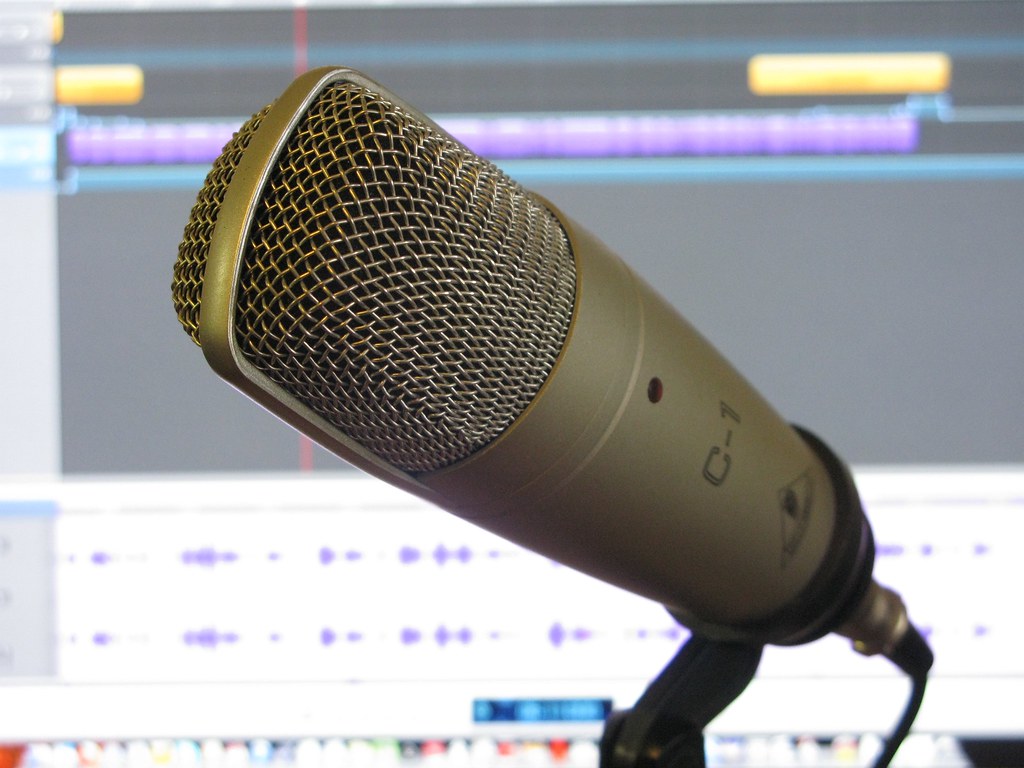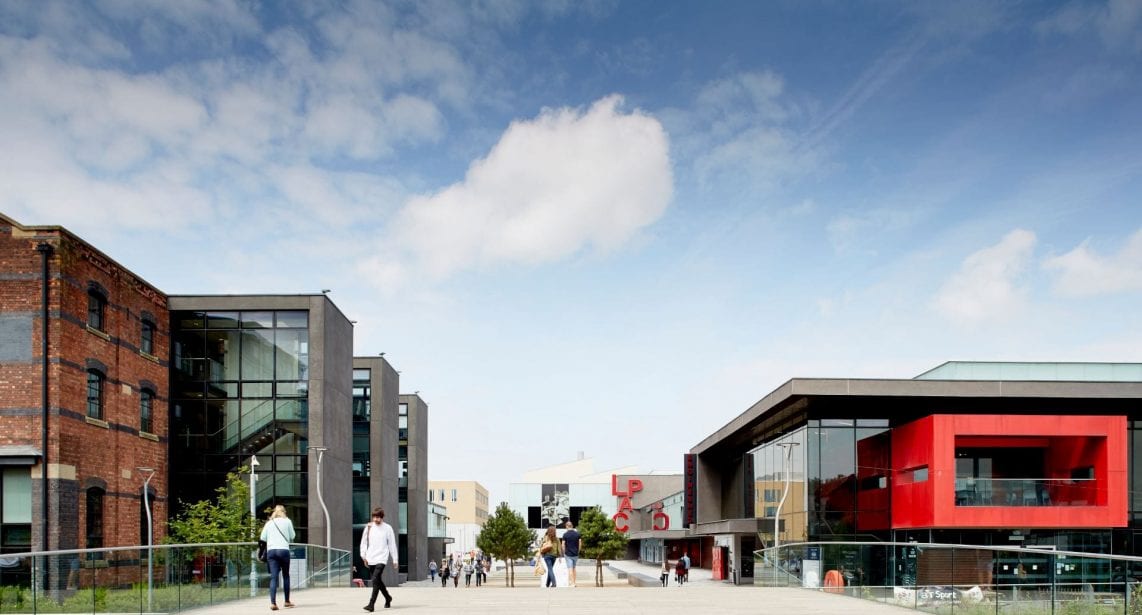Gentle reader, how are you doing? I hope you and yours are all healthy and safe. When I began this challenge in February 2019 I had no idea how much change lay ahead and how important digital means of learning and interacting would become. While lockdowns are shifting and changing around the world, it looks like our university, like many in the U.K. will return to teaching in the autumn on a blended model that combines in-person classes with online ones.
More than ever, it’s a great opportunity ponder the digital tools and online environments academic communities can use to teach and communicate. Thing 14 continues the theme of my last post, ‘tools the pandemic has made me think about in new ways’: this post’s theme is audio, specifically at sharing audio online through podcasts and Soundcloud.
 “Behringer C-1 Microphone” by Ian Kath is licensed under CC BY-NC 2.0
“Behringer C-1 Microphone” by Ian Kath is licensed under CC BY-NC 2.0
Podcasts
If podcasting were a person it would probably be dealing with having its a-levels cancelled this year, which leads me to reflect on the fact that many younger students in higher education have likely grown up listening to podcasts. I looked for some statistics on the average age of podcast listeners to back this assumption up and found some interesting things. Firstly, engagement seems to go up based on level of education (here). Secondly, engagement does seem to be highest among younger people: in Spring 2020, 18% of people in the U.K. over fifteen listened to a podcast once a week and engagement seems to be highest among people between the ages of 12 and 34 (the Podcast Host); another study put that figure as high as one in three people under the age of 35 (Statista).
It is only for the past eight months or so that I find myself among the podcast listeners–which is a bit inexplicable since me watching a movie or TV show typically involves minimal time actually watching the screen (in my defense, I’m usually trying to keep track of a cable pattern), and also I grew up in a household where we got much of our news and music from the radio. This similarity to radio shows made podcasts something I greatly enjoy once I started listening.
Possibly my lack of experience with podcasts was to blame, but I had some trouble finding active and regularly updated podcasts relating to my professional interests (librarianship and medieval studies) made by and for other professionals…a question of my preferences and also no doubt my poor podcasting finding skills. Suggestions welcome! Of the list of 20 best podcasts it was suggested we look at for this thing (here) I would interested in listening to almost none of them…except maybe You’re Dead to Me. Seeming stables of the podcasting realm such as politics, journalism and true crime (here)…just not my thing as a listener.
As a teacher and librarian at a university though, I can see where podcasts on these subjects would be an interesting teaching tool for political science, journalism, and criminology students, and I think there’s much more we could do to bring podcasting into our classrooms. One of the programmes I support, Philosophy, sometimes has students create podcast episodes as an assessment. In the move to blended models of teaching, I wonder if we’ll see more assignments asking students to create audio and video as part of the curriculum? Will students be asked to listen or watch material as well as read it?

“Silent Disco” by Kali187 is licensed under CC BY-NC 2.0
I hope so. I’d like to think that as our modes of teaching change, the resources we use will broaden. And to be clear, I think one of the most valuable things humanities students learn to do at university is read critically and write analytically–so I’m certainly not advocating the end of written assignments! As I wrote about with my post on video, there seems to be a perception that audio and video are predominantly made for entertainment and are not of suitable academic quality. Anecdotally, there seems to be a high percentage of people who work in universities who find recording and listening to the sound of their own voice uncomfortable. At least in medieval studies, and to a large extent librarianship too, the professional blog is still going strong. I was struck by Mark Carrigan’s piece arguing that podcasts are a natural fit for academic ideas…it would be fun hear our students and researchers talk about their work, and it’s exciting to ponder how to best support colleagues who want to engage with audio and video resources going forward.
Soundcloud
I’m a music librarian, so it was useful to read and learn more about another platform for audio creation and sharing, Soundcloud–which became teenager this year. One thing that thinking through this portion of the Thing 14 really brought up for me is the potential benefits of these tools for creators–a 2014 article about Soundcloud’s importance for music and musicians emphasized the platform’s then-dominant position in the music streaming landscape, the importance of the platform for musicians whose work combines the influences of multiple genres of music, and its’ role in expanding the careers of up and coming creators outside of the traditional structure of the music industry (here). While it seems Soundcloud has wobbled over the years, it still appears to be a significant force in the audio streaming landscape.
I’m not sure that SoundCloud will ever be something I need to use or teach about. Music students at the university of Lincoln have the support of a wonderful team of performing arts technicians, who support the recording and audio production aspects of their work. Still, it falls within the category of subject-specific examples that I might incorporate into examples of searching for information on the library website, or ways to open a discussion with students about how information is organised.
Final Thoughts
As someone who works in text-based ways in text-based disciplines, I was surprised and excited by how little I know about the use of audio and video in academic and library contexts. I’m looking forward to continuing to think about these as tools for communication and learning in the months ahead.
